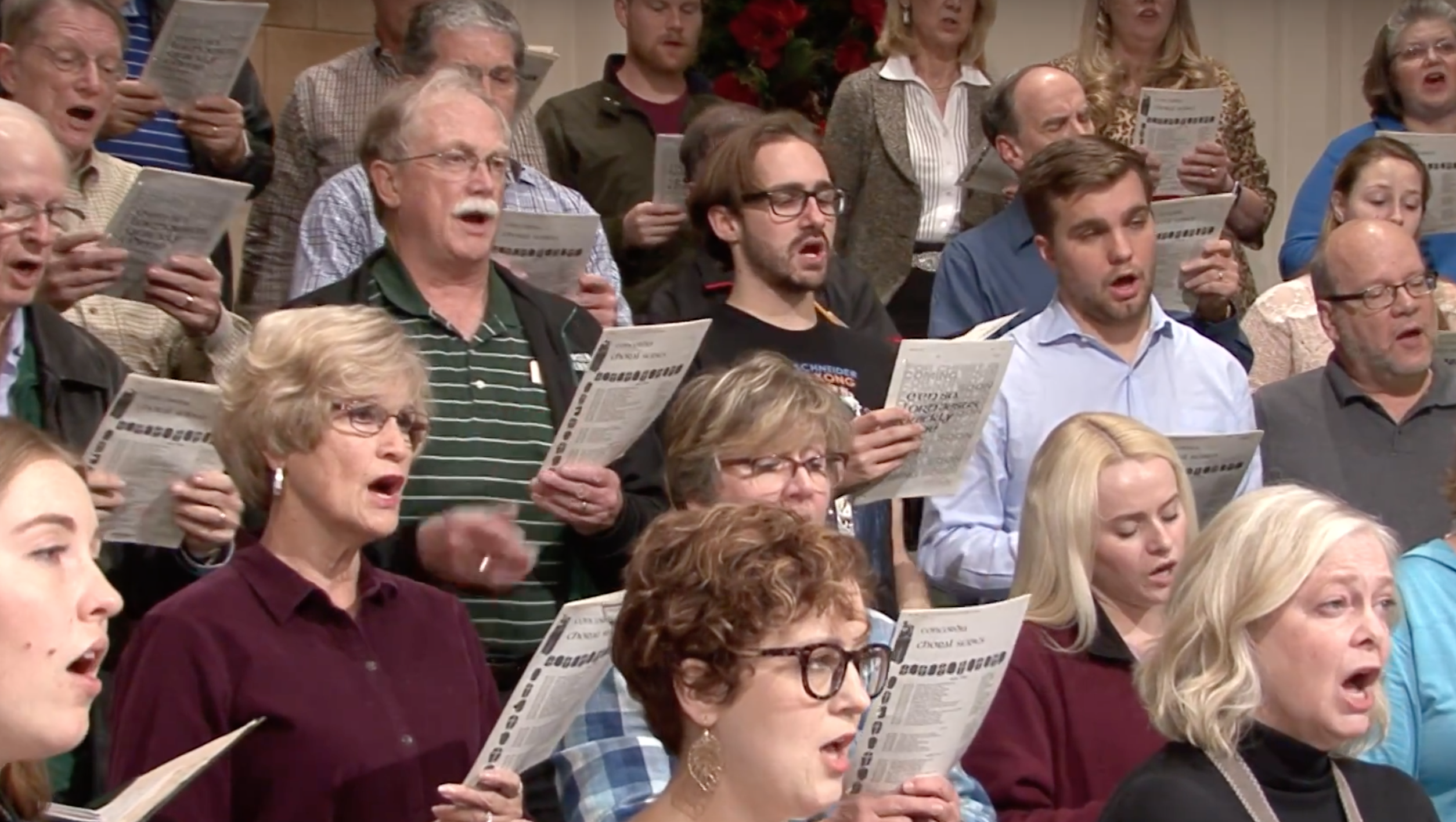Adult choirs still matter and these faithful singers when at their best contribute to the health of the church. A healthy adult choir both reflects and contributes to church health. What does it mean to have a healthy adult choir and what can ministers of music do to promote the health and vitality of the adult church choir?
Church (or religious) choirs in the United States exist in many sizes and sing a wide range of musical styles. “Choral singing continues to be the most popular form of participation in the performing arts” according to a Chorus Americaresearch project funded by The McKnight Foundation and the National Endowment for the Arts. In 2009 there were 270,000 choruses nationwide and 216,000 are religious choruses. A 2019 update on this study announced at the recent American Choral Directors Association meeting in Kansas City shows that participation in choral singing has actually increased.
What are some vital signs indicating a church choir is healthy?
1. Singers have a common understanding of the mission of the choir.
This seems simple but people sing in choirs for many reasons: spiritual, musical and social – and sometimes all three. A minister of music cannot assume what people are thinking. How do you find out? Ask them. Or at least ask a representative group.
Especially when beginning again in a new church it is important to create a space for singers to talk about their best experiences in choir and to find out why they sing. Does the choir have some sort of clarity about why they do what they do? A mission statement may be helpful in capturing this common understanding. Our Wilshire Sanctuary Choir mission statement is “inspiring the worship of God with beautiful singing.”
2. Singers are willing to share their positive experiences.
Our singers are our best recruiters. Choirs and ministers of music must always be cultivating the next generation of singers. One of the challenges I hear about from church musicians across the country is that the average age of the adult choir is skewing older.
We have worked strategically for several years to bring generational balance to our Wilshire Sanctuary Choir. One way to engage singers is to invite choir members to talk or write about why they are in choir. On our Sanctuary Choir webpagethere is a video and an article describing singers’ experiences:
One young adult singer writes:
I love the community. This is not a reason I joined the choir, but it is a reason I stay. I had no idea what a wonderful community Sanctuary Choir is until I walked through the doors on my first Wednesday night. I love getting to know these people and getting to interact with a completely different subset of church members than I usually see. My Sunday School class . . . is made up of people in the same stage of life as me. But my community at Wilshire would not be complete without the men and women of Sanctuary Choir.
3. The choir welcomes new singers and strangers become friends.
Okay, let’s be honest. In some choirs, singers have been together for so long the spiritual gift of hospitality is non-existent. Let me illustrate. My wife, Lori, has been a faithful choir member in every church we’ve served. Many decades ago we moved to a new church. At the first Wednesday rehearsal Lori took a seat in the soprano section. Another soprano walked up to her a few minutes later and said, “You’re in my seat.” Lori is a gracious person and moved to another seat in the choir room. To her credit she laughed about the incident and continued attending choir. I’m not sure I would have been so nice!
A choir is healthy when we make space for new singers and when we figure out what hospitality looks like. If you have a website, consider how this information can help a guest understand what the choir experience is like? Do you help new singers get acclimated? Do you follow up after a visit?
My friend, Sue, recently told me she was going to have to take a leave of absence from choir. I knew that “leave of absence” was easier to say than to say she was retiring due to poor health. She had sung in the Wilshire Choir for three decades and she had been singing in church choirs since the 1960s. Sue always told me as the years went by, “The last thing I’ll give up at church is choir.” Our hearts were heavy when I told the choir Sue had to give up singing in the Wilshire Choir.
Sue represents a generation of faithful folk who have served the Lord by singing. We best honor this legacy of commitment to God and to the church when we find ways to keep adult choirs healthy as we pass this gift on to the next generation.

Leave a Reply